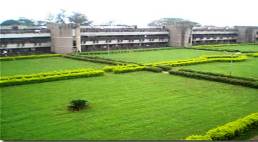|
| Education System in Benin |
Primary Education
There are no school fees in Benin any longer. The education program adheres to the French model of 6-4-3, and is compulsory from age 6 through to age 11. This period is spent at primary school where children receive their foundation education.
Middle Education
The following 4 years are spent at middle school where a general academic curriculum continues. At the end of this period, students write their brevet d’etudes du premier cycle examination which is the equivalent of O-levels.
Secondary Education
Students who wish to pursue their academic options further proceed to senior high school for a another 3 years. After that, they still have to pass their baccalaureat examination which is the key to the doors of university. If they prefer, they may go to one of 5 vocational schools spread across 12 provinces instead.
Vocational Education
Benin has reformed its vocational training system in line with urban demand for skilled labor. Notable among its strategies is a dual apprenticeship system, where theoretical education alternates with practical apprenticeship training.Tertiary Education
 Lower order tertiary institutions in Benin include a school of applied economics & management, a national school of administration & prosecutor training, a polytechnic, a teachers’ training school and several others. These are clustered in urban areas in wealthier provinces, and are largely inaccessible to the nation's poorer youth.
Lower order tertiary institutions in Benin include a school of applied economics & management, a national school of administration & prosecutor training, a polytechnic, a teachers’ training school and several others. These are clustered in urban areas in wealthier provinces, and are largely inaccessible to the nation's poorer youth.
There are 2 universities, of which the National University of Benin illustrated here is the more prestigious. It was established in 1970 originally as the Université du Dahomey, and has 19 institutions and 6 campuses.